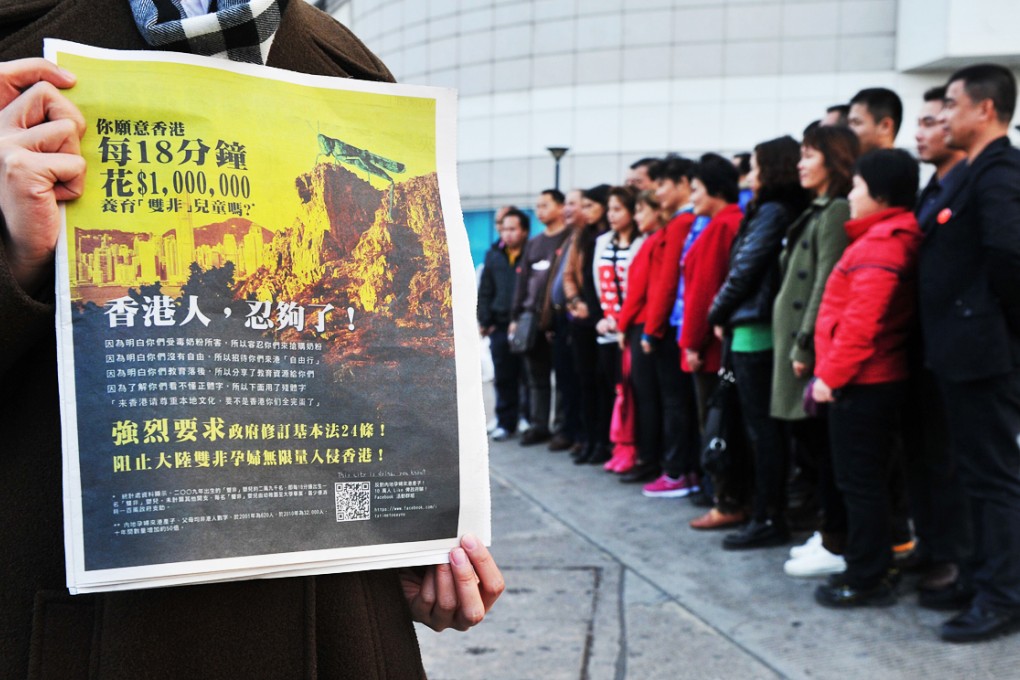Hongkongers should back improved legal protection against discrimination
Su-Mei Thompson rallies the public to back proposed changes to Hong Kong's discrimination laws that will improve rights protection for all

The Equal Opportunities Commission has launched a public consultation on its review of Hong Kong's discrimination laws. So far, the most vociferous responses have come from the anti-mainland lobby and from anti-LGBT groups.
The anti-mainland lobby has accused the commission of being a stooge of Beijing for proposing protection from discrimination based on immigration or residency status, which could prohibit the now common use of the slur "locusts" to refer to mainland visitors.
Meanwhile, although same-sex marriage is outside the scope of the review, religious and other conservative groups are upset by the suggestion that the definition of marital status could be widened to include de facto relationships, since this could lead not just to heterosexual de facto couples, but also homosexual couples being entitled to employment, health and other benefits.
We are concerned that the incendiary rhetoric employed by some groups is distracting attention from the review's overall goal, which is to seek the public's support to modernise and improve the protection afforded by the four ordinances that cover discrimination on the grounds of sex, family status or responsibilities, race and disability.
We hope that the community will rally in support of the many important recommendations that address inconsistencies and gaps in the protection given to pregnant women and new mothers in terms of job security, women working in the services industry who are sexually harassed by clients, and women in the workforce who are not receiving equal pay for work of equal value.
Expanding the scope of protection to couples in de facto relationships will improve the rights and benefits enjoyed by the many women (and men) who are in long-term relationships but who have eschewed marriage. Further, a proposed duty on public authorities to promote equality could help improve access to education by ethnic minority groups, not least their girls.
